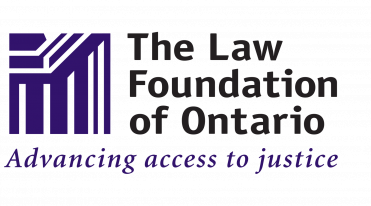Anne Fletcher works at the Social Health and Economic Development Society of Bella Coola (SHED) as the Central Coast (BC) Legal Advocate. Her story was selected in the top 3 of 38 stories by the Legal Services Society of British Columbia (LSS) for affecting the “Most Significant Change” among LSS Community Partners.
Klemtu is home to the Kitasoo/Xai’xais First Nations. It is a very remote and isolated island community on the central coast of BC – north of Port Hardy and south of Prince Rupert. Just over 200 people live on-reserve there. Klemtu is located on Swindle Island and there is no road access; access is by air or water only. There are two primary options to travel between Bella Coola and Klemtu:
- Take a charter flight (45 minute flight; approximately $800 each way)
- Take a charter flight to Bella Bella (30 minute flight; approximately $500 each way), and then travel from there to Klemtu by boat (2 hour boat ride; approximately $200)
Klemtu is a community where it is not uncommon for people not to have a phone in their home. Travelling outside the community to access services is not an option for most people living there.
There are no local police in Klemtu. Police come into the community for a couple of days every 2 weeks and have little or no connections or relationships with community members. Circuit court comes to Klemtu only twice a year. There are some serious criminal and family matters that happen there and the people involved (the accused persons, victims, and families and community members) sometimes wait months for the circuit court team (judge and lawyers) to hear these matters.
There is no place in Klemtu where a person can go to apply for Legal Aid in person; the only option is to apply by phone … if you have one. Even for those who are sufficiently fluent in English to manage a phone application, many of them find phone applications confusing and intimidating.
The Circuit Court team that visits Klemtu (and neighbouring communities such as Bella Coola, Bella Bella, Wuikinuxv) found that it was extremely difficult (“like pulling teeth”) to get people in Klemtu to make Legal Aid applications – until I started visiting Klemtu as part of my work. Being able to see people face-to-face makes all the difference: I can help “work them through” the Legal Aid application and the Circuit Court team is thrilled that I am able to facilitate the intake applications.
Before I started doing this work the Circuit Court team would often arrive for court and find many unrepresented parties attending because they had either not made, or not completed, their intake application and therefore didn’t get a Legal Aid lawyer in time for their hearing date. Now that I am supporting people in Klemtu in making Legal Aid applications, as well as building local capacity in this work, the Circuit Court team is finding that more people have lawyers to represent them at their hearings and matters are not having to be put over to the next Circuit. I have also trained one local service provider to facilitate Legal Aid applications for community members. For me, this is the most significant change as a result of the outreach and advocacy work I am doing in my area: Klemtu finally has help with legal aid applications.
The Law Foundation of Ontario, through its Access to Justice Fund, supports Anne’s work by funding the expanded services to remote Aboriginal communities located on the central coast of British Columbia. SHED receives funding from the Law Foundation of British Columbia, the Legal Services Society of British Columbia, and the Central Coast Regional District.

